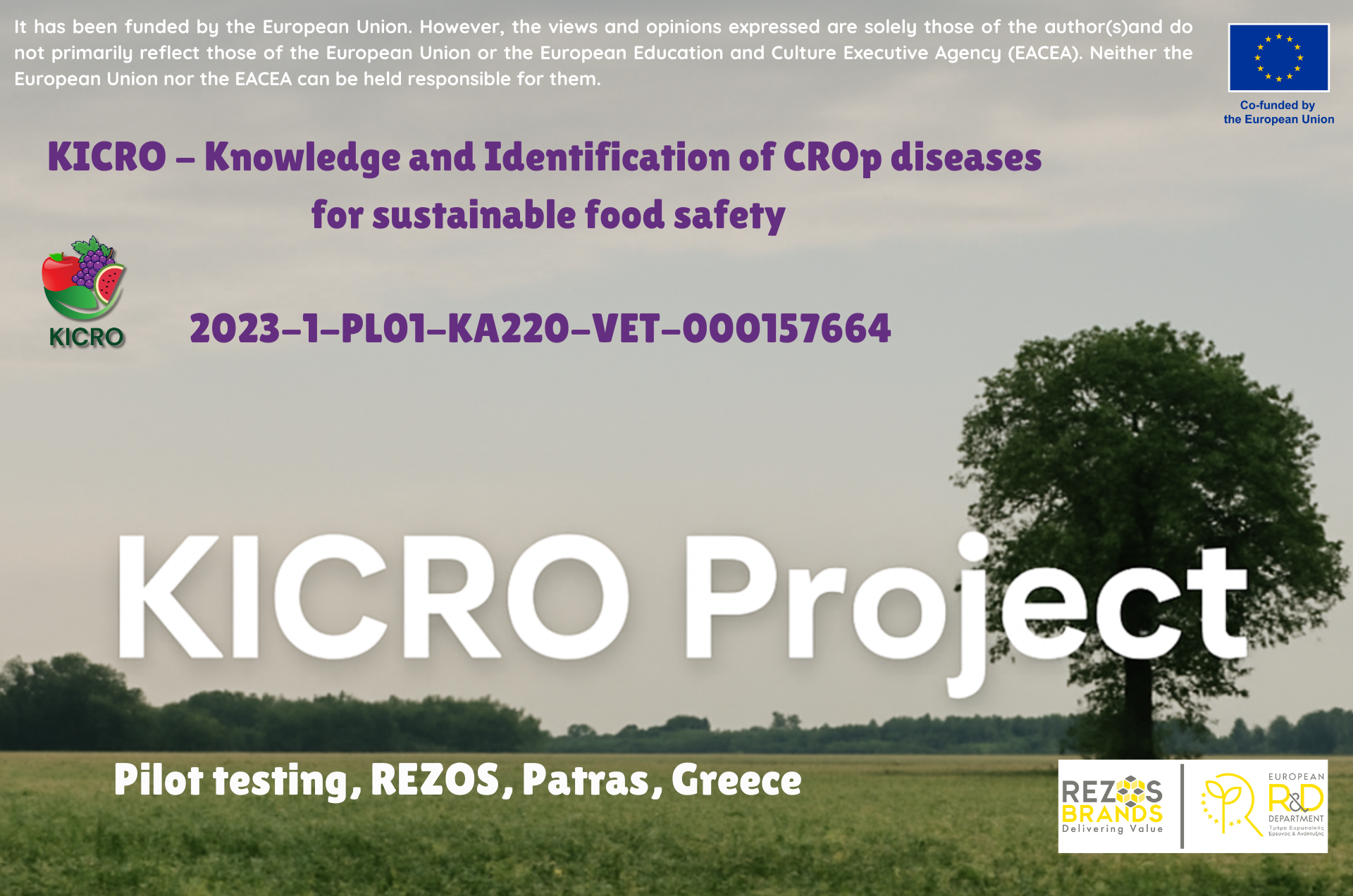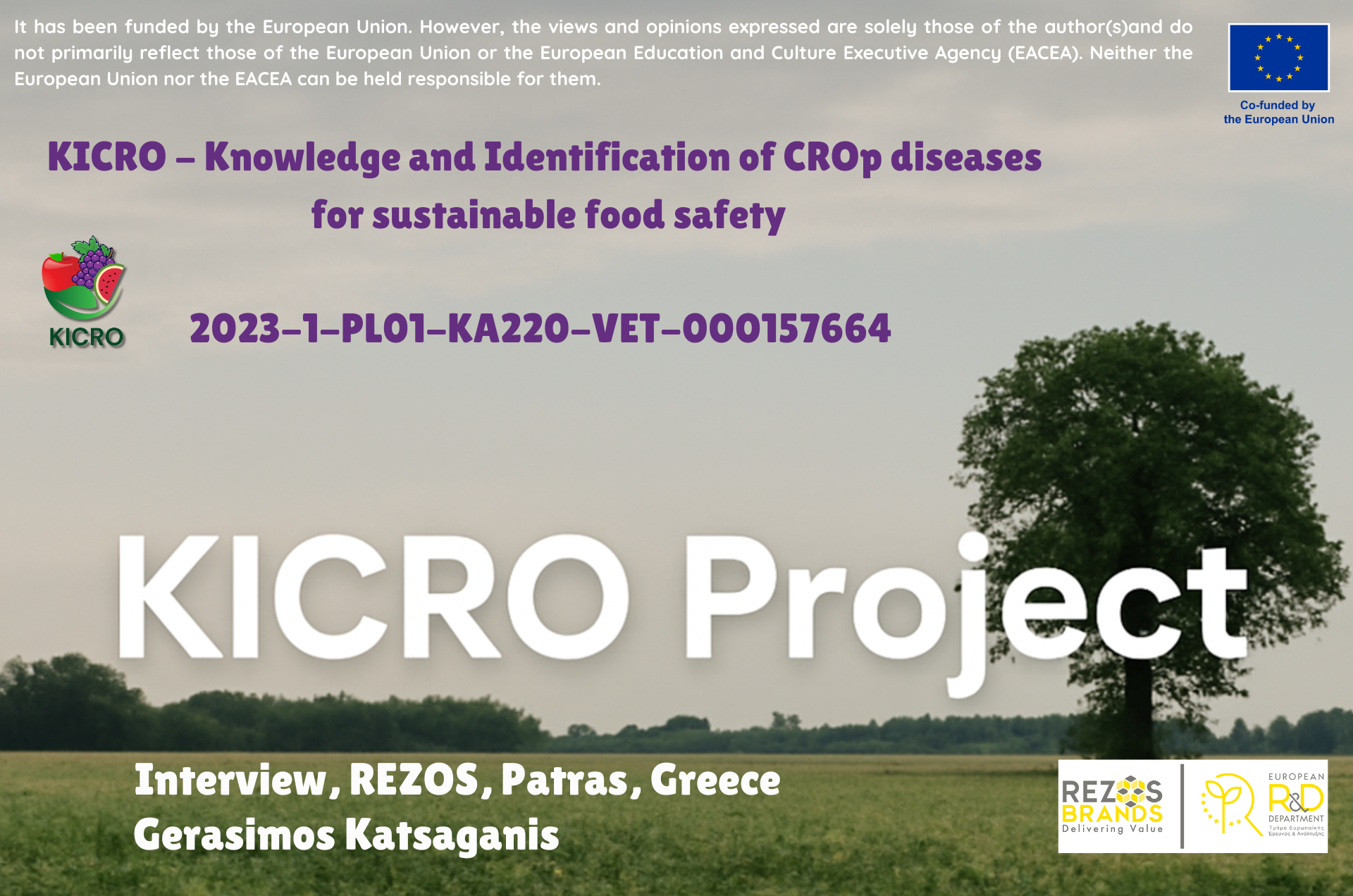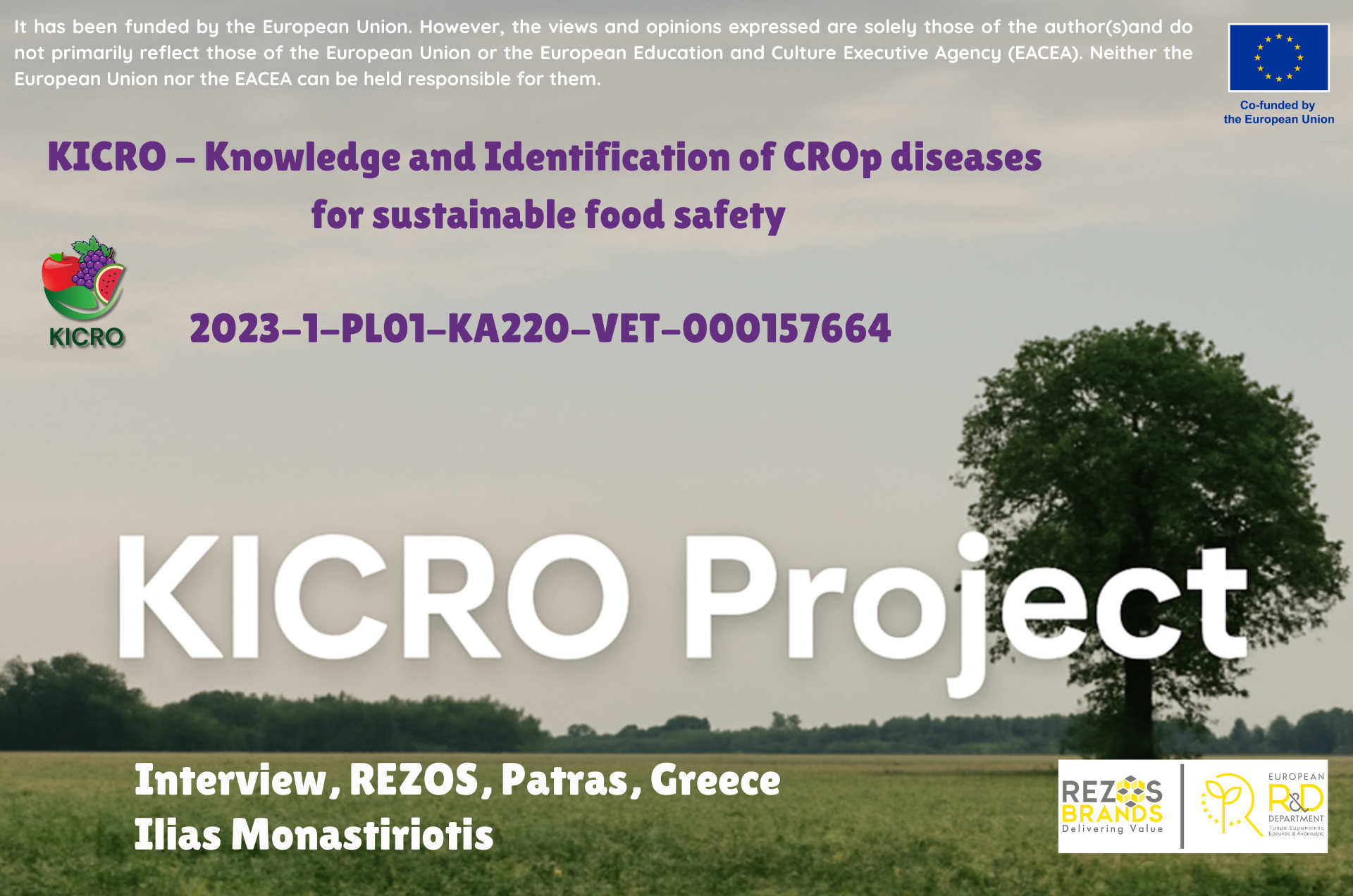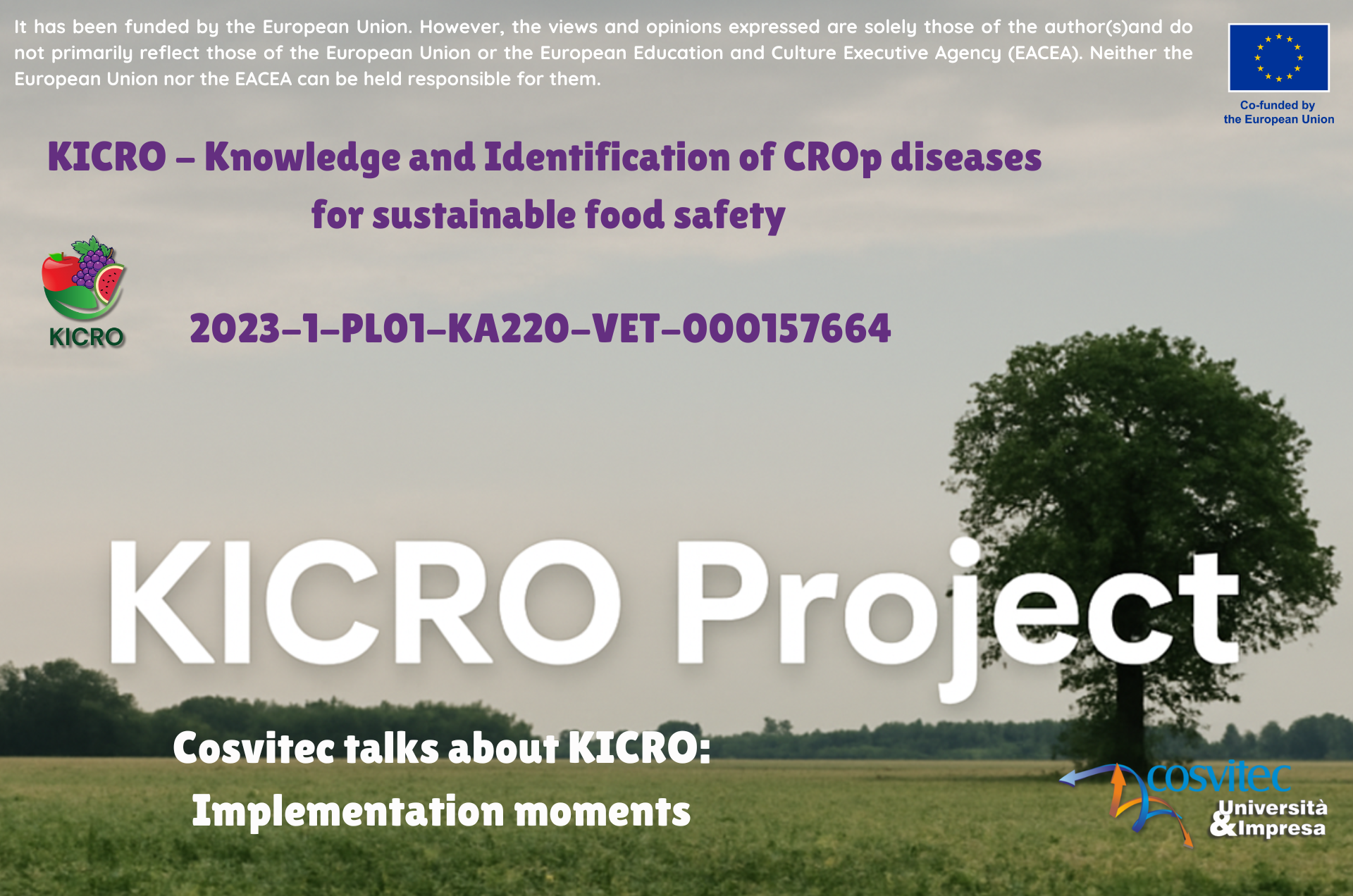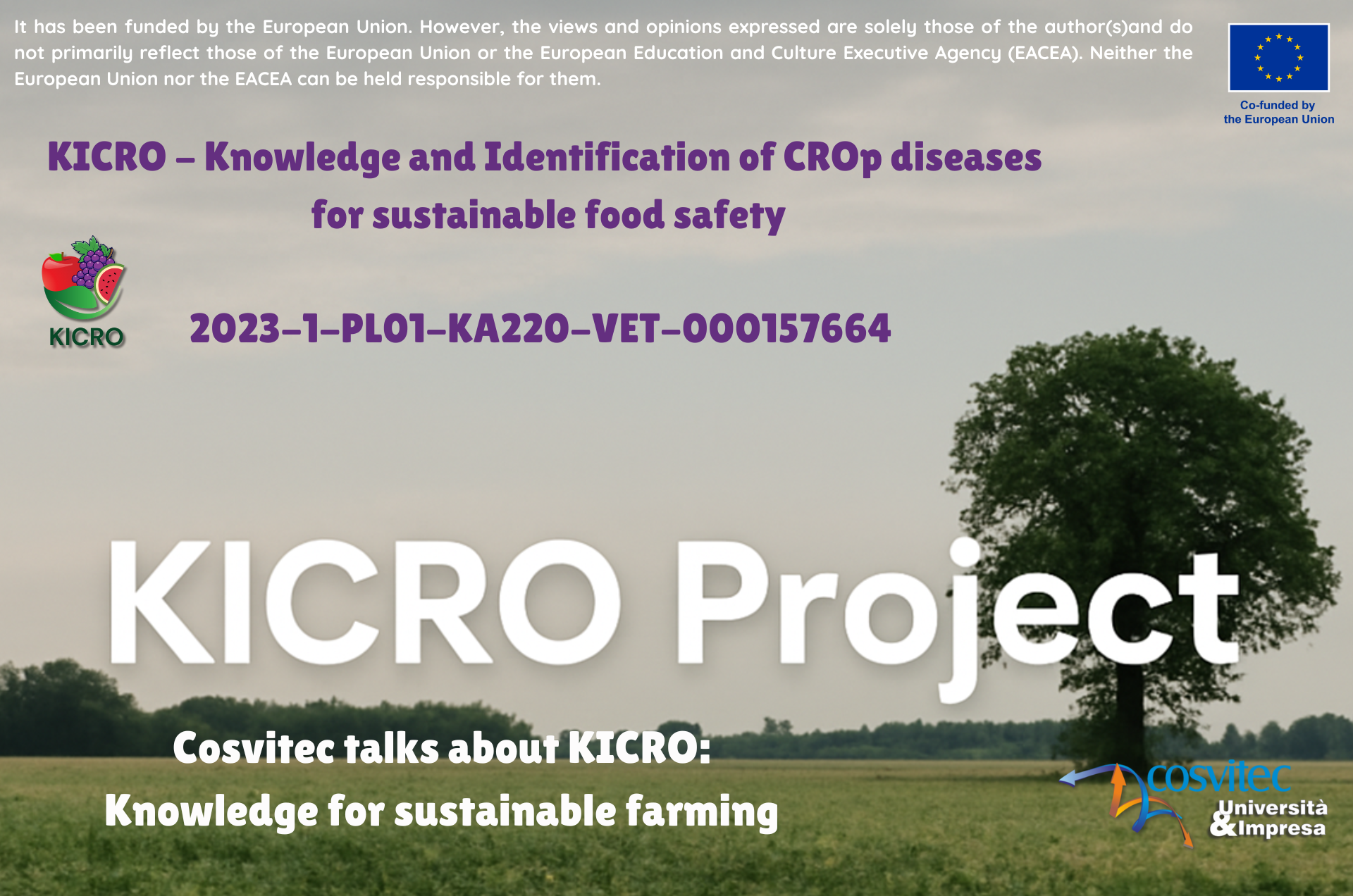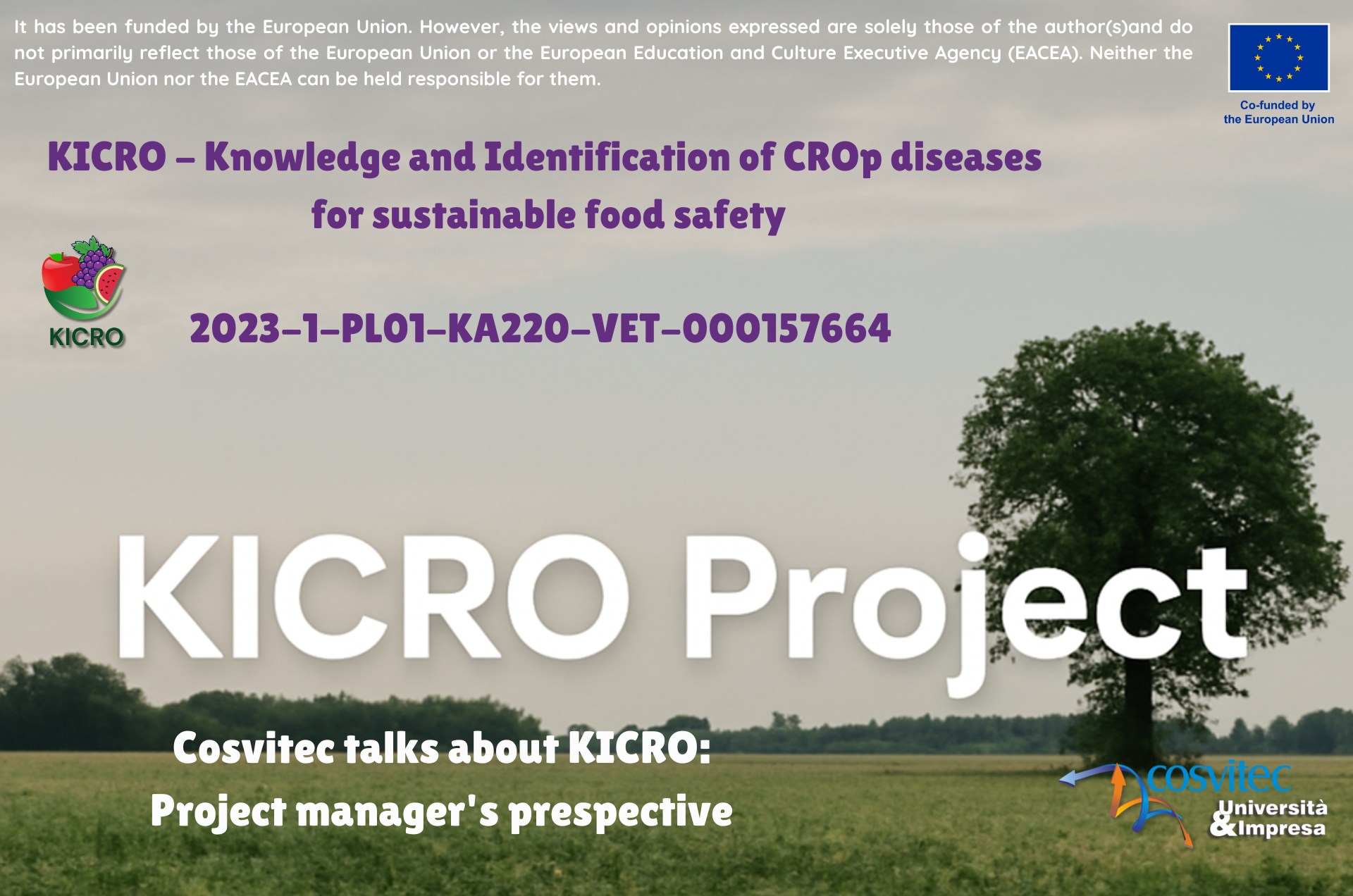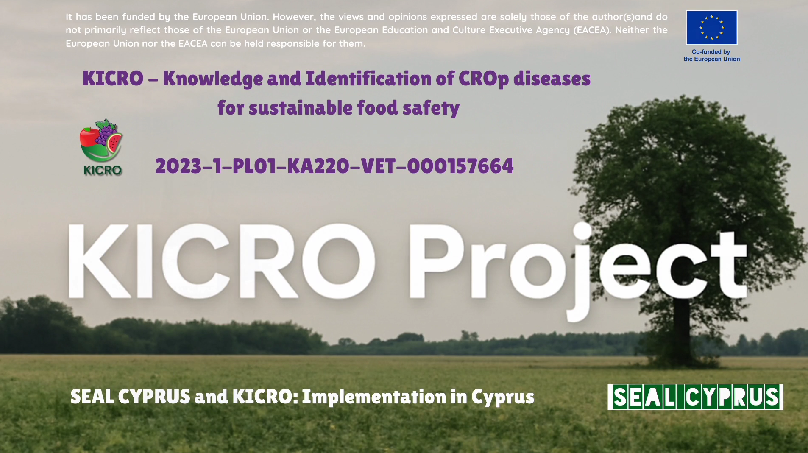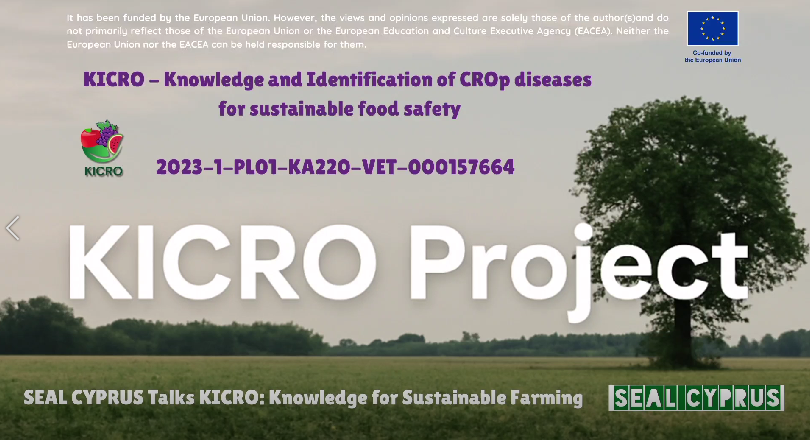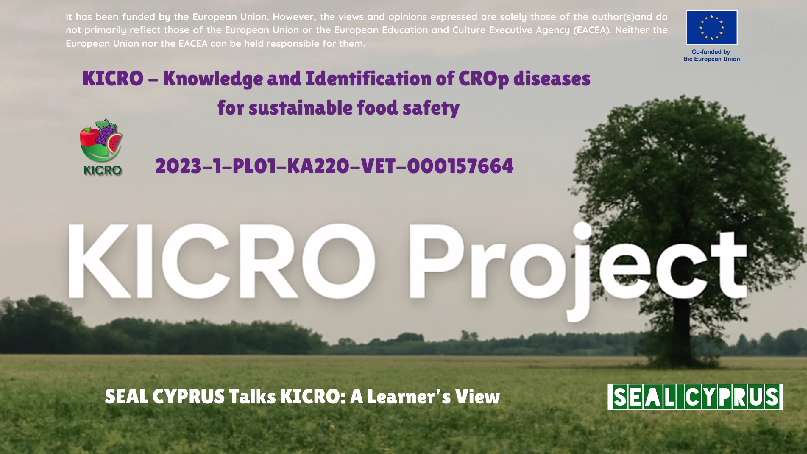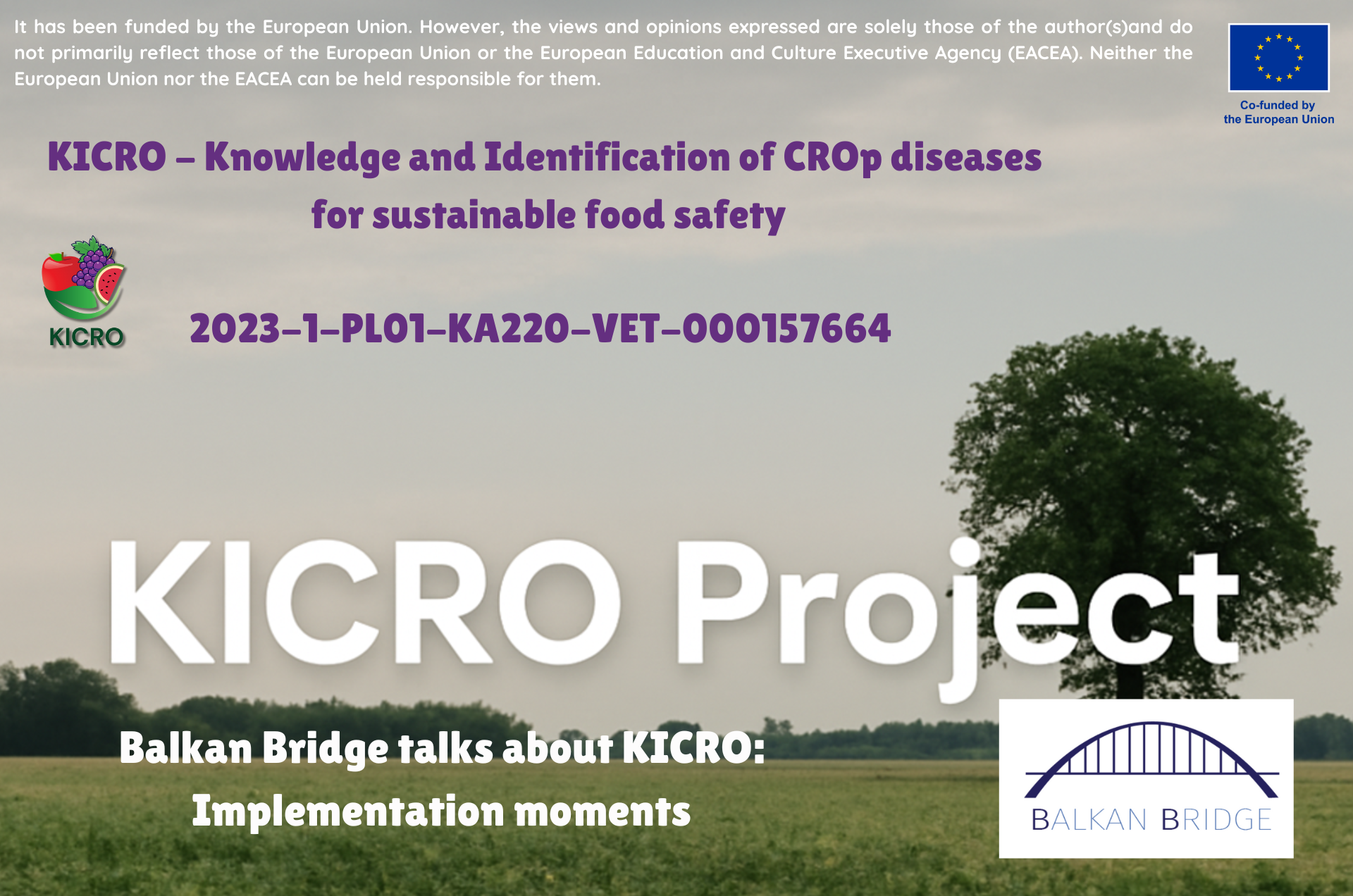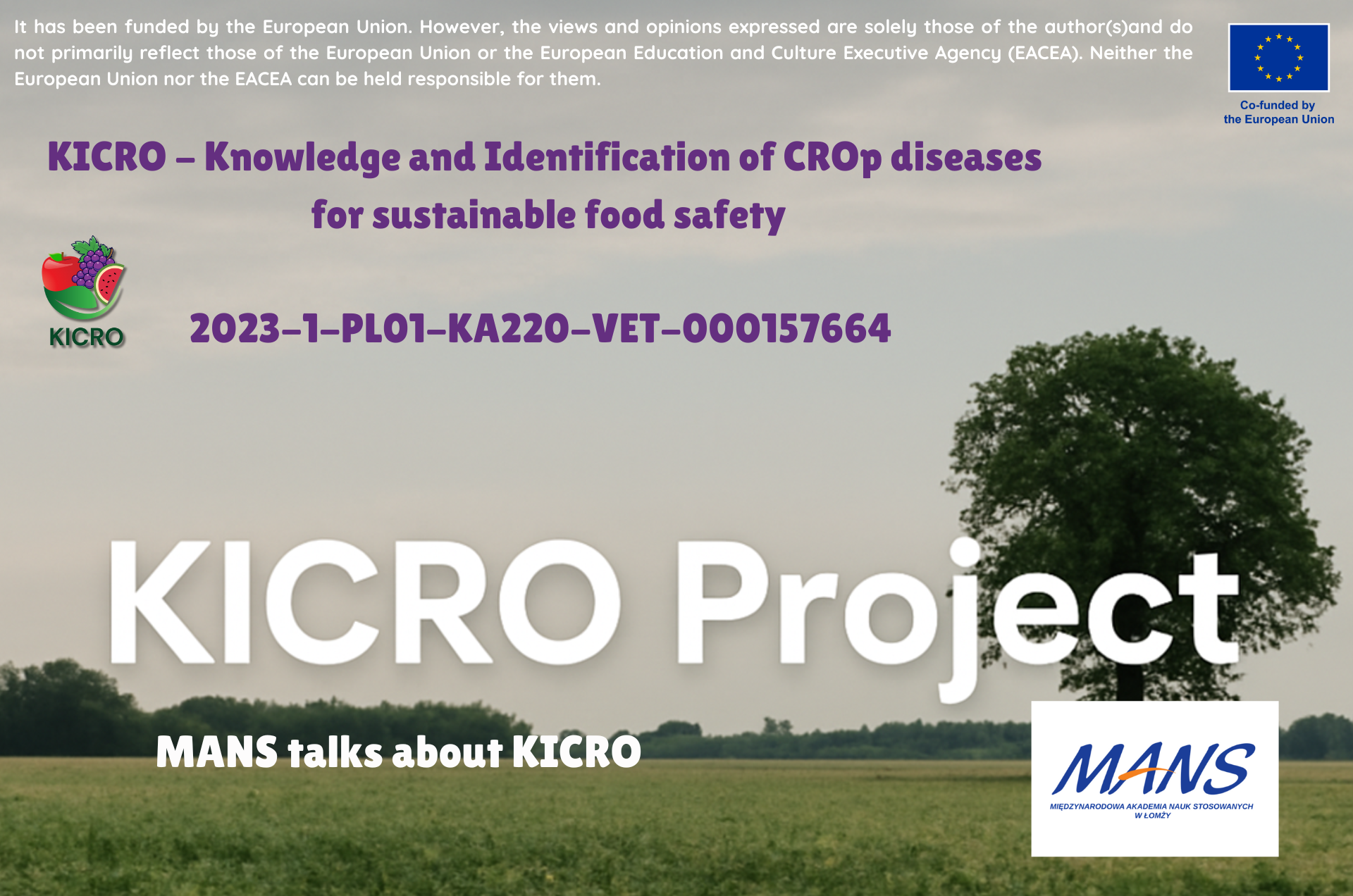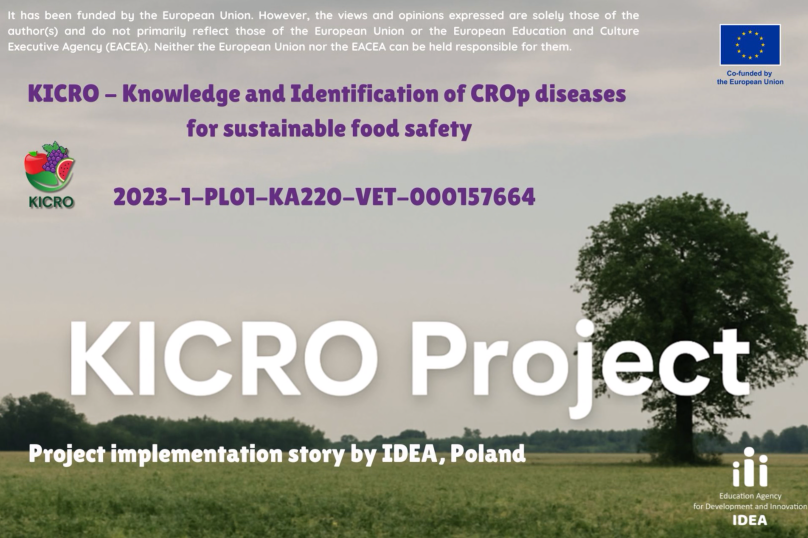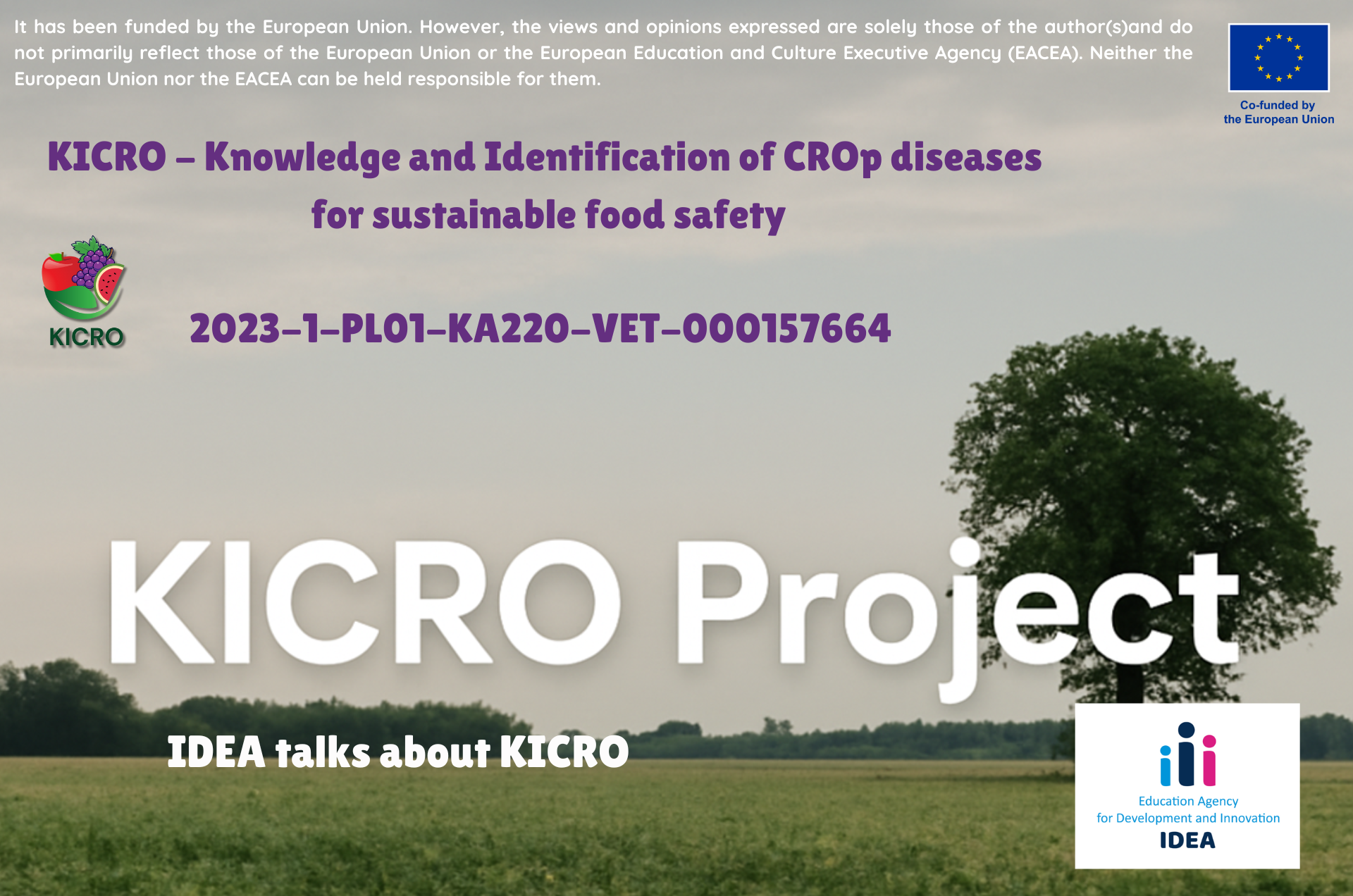The KICRO project
KICRO is a KA220 VET Erasmus+ project aiming to provide the fruit growing sector (farmers and packinghouses' staff) with tools to improve their knowledge and better identify fruit and vegetable diseases (pathological and physiological) and their causes, one of the responsible sources of fruit losses along the food chain.

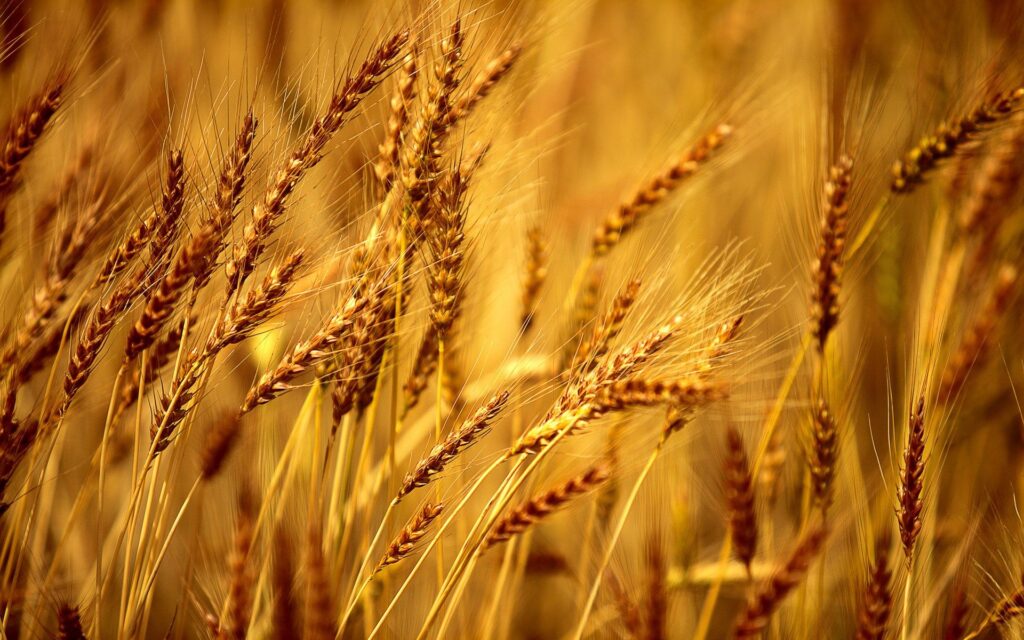
KICRO project video stories
Objectives
Main objective
- Provide the fruit growing sector with tools to improve their knowledge and better identify crop diseases (pathological and physiological) and their causes for sustainable food safety.
- Conduction of a crop and disease selection.
- Pilot test training (e-learning course).
Specific objectives
- Creation of a multilingual E-learning platform with educational material.
- Dissemination of the project and the e-learning platform.
- Physical one-week training for the partners.
- One multiplier event in each country.
Specific objectives
- Creation of a multilingual E-learning platform with educational material.
- Dissemination of the project and the e-learning platform.
- Conduction of a crop and disease selection.
- Pilot test training (e-learning course).
- Physical one-week training for the partners.
- One multiplier event in each country.
Goals
- The KICRO project aims to empower the fruit growing sector, specifically farmers and packinghouses' staff, by providing tools for better identification of fruit and vegetable diseases.
- By addressing these diseases, which contribute to significant fruit losses and environmental impacts, KICRO aligns with environmental sustainability goals and climate change mitigation.

- Additionally, it focuses on vocational education and training, aiming to create jobs that adapt to evolving market needs.
- In essence, the KICRO project strives to enhance the fruit-growing sector, promote environmental responsibility, and contribute to sustainable practices.
- The project supports the reduction of chemical treatments, fostering organic farming, and aligns with the European Green Deal priorities.
The KICRO project aims to empower the fruit growing sector, specifically farmers and packinghouses’ staff, by providing tools for better identification of fruit and vegetable diseases.
By addressing fruit and vegetable diseases, which contribute to significant fruit losses and environmental impacts, KICRO aligns with environmental sustainability goals and climate change mitigation.
Additionally, KICRO focuses on vocational education and training, aiming to create jobs that adapt to evolving market needs.

In essence, the KICRO project strives to enhance the fruit-growing sector, promote environmental responsibility, and contribute to sustainable practices.
The project supports the reduction of chemical treatments, fostering organic farming, and aligns with the European Green Deal priorities.
The KICRO project aims to empower the fruit growing sector, specifically farmers and packinghouses’ staff, by providing tools for better identification of fruit and vegetable diseases.
By addressing fruit and vegetable diseases, which contribute to significant fruit losses and environmental impacts, KICRO aligns with environmental sustainability goals and climate change mitigation.
Additionally, KICRO focuses on vocational education and training, aiming to create jobs that adapt to evolving market needs.

In essence, the KICRO project strives to enhance the fruit-growing sector, promote environmental responsibility, and contribute to sustainable practices.
The project supports the reduction of chemical treatments, fostering organic farming, and aligns with the European Green Deal priorities.

